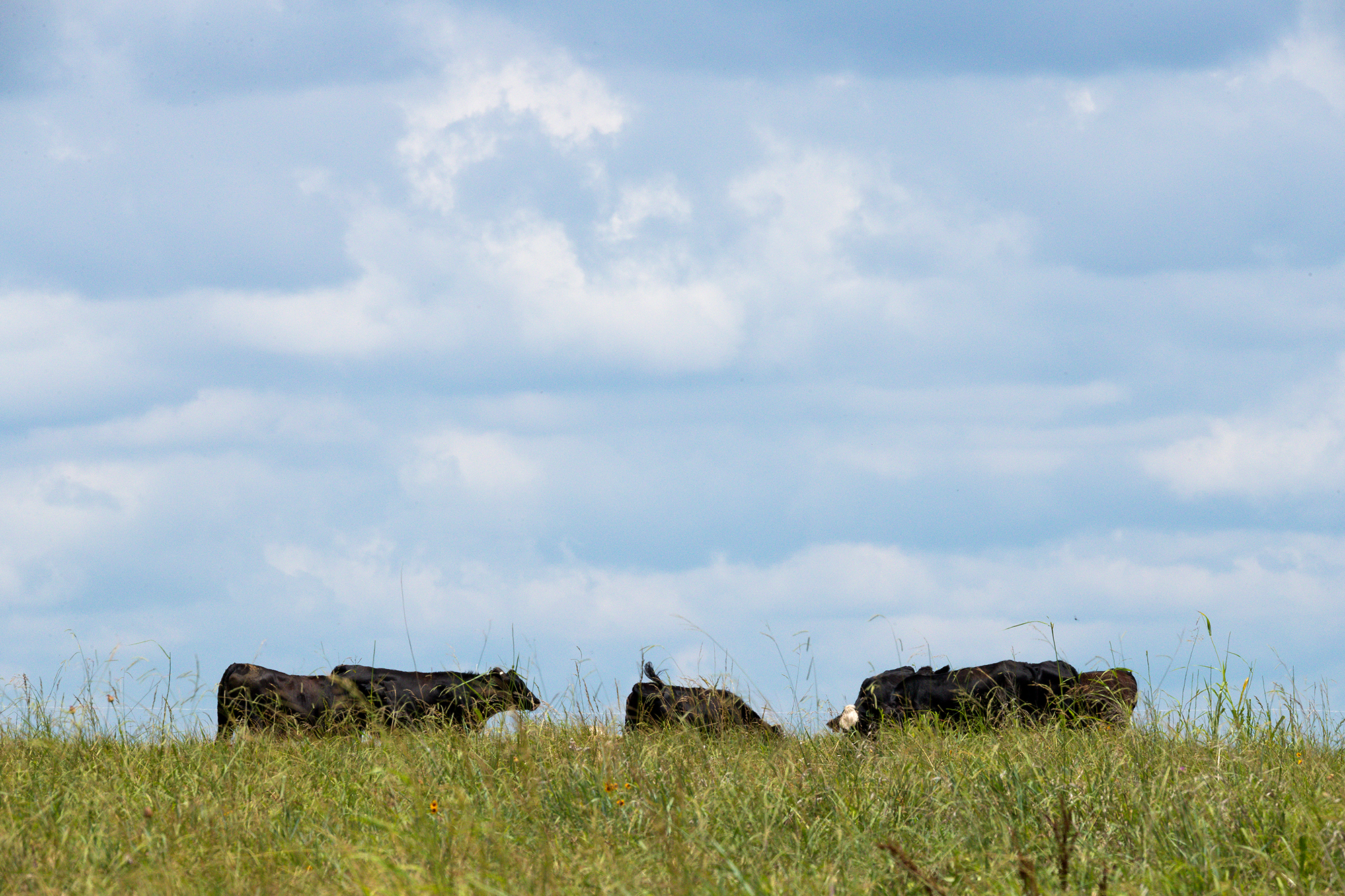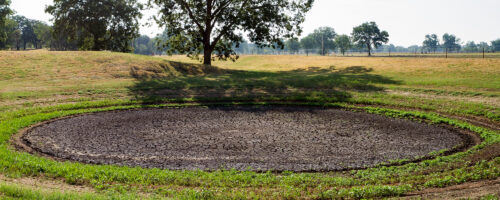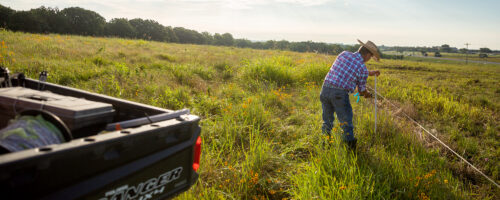Noble Research Institute Awarded Conservation Grant to Improve Health and Resilience of Southern Great Plains Grasslands
Noble received one of six grants from the National Fish and Wildlife Foundation to improve soil health, support biodiversity and increase carbon sequestration.
ARDMORE, OK (October 16, 2023) Noble Research Institute announced today that the National Fish and Wildlife Foundation and partners awarded the independent nonprofit agricultural research organization one of six grants to improve grassland health, support biodiversity and increase carbon sequestration to improve climate resilience in the Southern Great Plains grasslands.
Consistent application of these principles results in improved soil health over time and can unleash the many benefits of healthy soil. One imperative benefit is increased biodiversity of plants and pollinators as well as enhanced habitat for wildlife.
“Using adaptive grazing is such a powerful tool to improve plant diversity, which is critical to wildlife habitat,” said Will Moseley, Noble regenerative ranching adviser and Certified Wildlife Biologist®. “By improving water distribution and infrastructure, we will be able to use small ruminants to keep woody encroachment from turning our grasslands into woodlands.”
The NFWF grants were awarded through the Southern Plains Grasslands Program, with individual contributions provided by Burger King, Sysco and Cargill, and additional support from the USDA’s Natural Resources Conservation Service and the U.S. Fish and Wildlife Service.
The impact of the support from NFWF and its partners will extend long past the duration of the grant. Resulting research findings and grazing management experiences will shape Noble’s rancher education curriculum moving forward, a curriculum that will be dynamic and shared across the nation.
Noble aims to help producers overcome the barriers that deter the lasting use of regenerative, profitable land management practices in grazing animal production. Our goal is to guide farmers and ranchers in applying regenerative principles that yield healthier soil, more productive grazing land and business success.
“With this support from National Fish and Wildlife Foundation and their funding partners, Noble can equip farmers and ranchers to address the health and resilience of grasslands and enhance the habitat for the wildlife dependent on these lands,” said Steve Rhines, Noble Research Institute president and CEO. “Simultaneously, we can help them create a more resilient ranching operation to ensure their family remains on the land for generations to come.”
About Noble Research Institute
Noble Research Institute, LLC is an independent nonprofit agricultural research organization dedicated to guiding farmers and ranchers in applying regenerative principles that yield healthier soil, more productive grazing land, and business success. Researchers, facilitators and ranch staff work together to give farmers and ranchers the skills and tools to regenerate the land in a profitable manner. Noble is focused on the regenerative management of the nation’s grazing acres, which directly impacts pasture and range environments, wildlife, pecan production, and livestock production. Regenerative management recognizes that each decision made on the ranch impacts the interactions of the soil, plants, water, animals, economics and people. Noble’s 14,000 acres of working ranch lands provide a living laboratory on which to demonstrate and practice regenerative principles and ideas to deliver value to farmers and ranchers across the U.S.
About the National Fish and Wildlife Foundation
Chartered by Congress in 1984, the National Fish and Wildlife Foundation (NFWF) protects and restores the nation’s fish, wildlife, plants and habitats. Working with federal, corporate, foundation and individual partners, NFWF has funded more than 6,000 organizations and generated a total conservation impact of $8.1 billion. Learn more at www.nfwf.org.
Photo

Noble Research Institute is an independent nonprofit agricultural research organization dedicated to guiding farmers and ranchers in applying regenerative principles that yield healthier soil, more productive grazing land, and business success.
At Noble, researchers, facilitators and ranch staff work together to share with farmers and ranchers the skills and tools to regenerate the land in a profitable manner. Noble is focused on the regenerative management of the nation’s grazing acres, which directly impacts pasture and range environments, wildlife, pecan production, and livestock production. Regenerative management recognizes that each decision made on the ranch impacts the interactions of the soil, plants, water, animals, economics and people. Noble’s 14,000 acres of working ranch lands provide a living laboratory on which to demonstrate and practice regenerative principles and ideas to deliver value to farmers and ranchers across the U.S.
For media inquiries concerning the Noble Research Institute, please contact:
Linda Fisk, Chief Marketing Officer | 580-223-5810
For article reprint information, please visit our Media page.


Comment